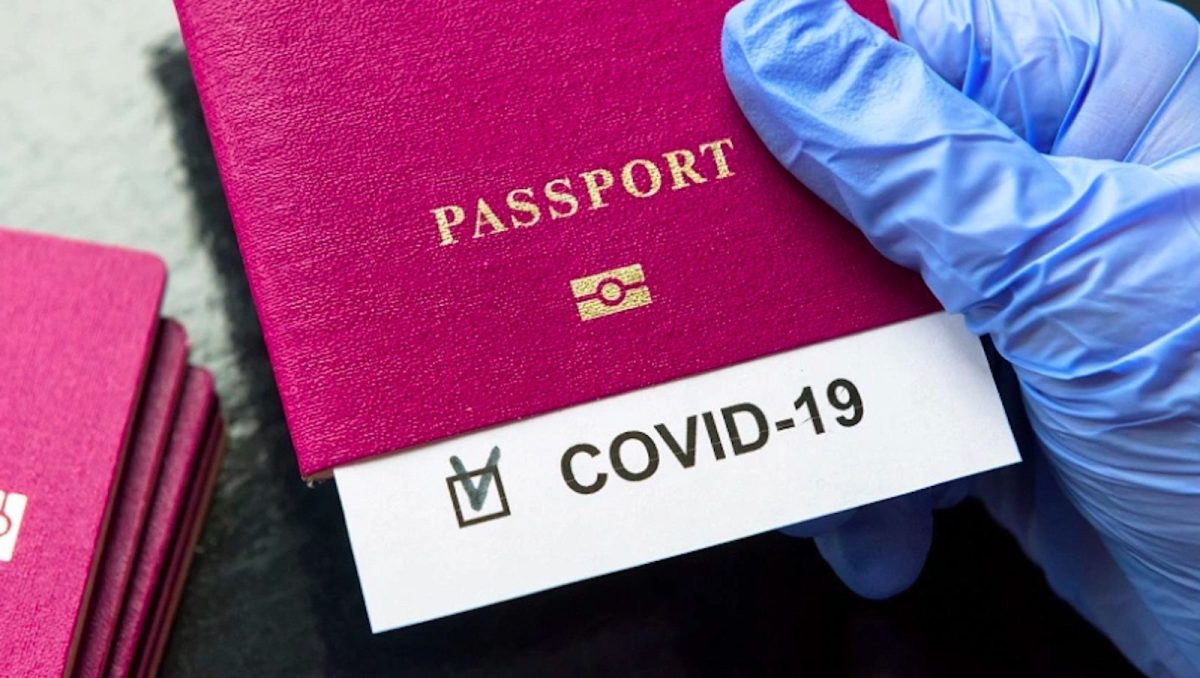[ad_1]
Hong Kong’s government is under pressure to speed up its talks with mainland China and other countries about establishing “vaccine passports†to facilitate post-pandemic travel, trade and tourism.
The calls came after the European Commission announced on Wednesday that its plan to launch a Digital Green Certificate scheme to facilitate the free movement of vaccinated people in all European Union member states. The scheme is expected to kick off in June.
“There is no need to wait for zero infections in Hong Kong before we start to discuss about the resumption of quarantine-free travel,†Ho Pak-leung, head of the University of Hong Kong’s Center for Infection, said Thursday. “Hong Kong should first begin talks with its neighbors about jointly launching vaccine passports.â€
Any Covid-19 inoculation that has an efficacy rate of at least 50% should be recognized for the use in vaccine passports, Ho said, citing World Health Organization requirements. He said Hong Kong should first approach South Korea and Japan, the city’s two most-visited countries, as they have similar epidemic situations.
Ho suggested that mainland China and Taiwan should be the next vaccine passport targets.
Vaccinated people would be exempted from quarantine requirements when they travel between Hong Kong and other countries with vaccine passports agreements, Ho said. However, these travellers should still be required to get Covid-19 tests on the first, fifth and seventh day after they return to Hong Kong, he said.
Yiu Si-wing, a director at China Travel Service and a lawmaker representing the tourism sector, said Hong Kong should first talk to the mainland, which announced the launch of an International Travel Health Certificate scheme earlier this month.
Yiu said after Hong Kong formed a “travel bubble†with the mainland through a vaccine passport scheme, its talks with other countries to launch similar schemes would be easier.
On Wednesday, Chief Executive Carrie Lam said in a Legislative Council meeting that the government had initiated talks with Beijing about easing quarantine requirements for those who received the two-dose vaccination to commute across the border.
On March 7, Chinese Foreign Minister Wang Yi said in a media briefing that China would soon launch its vaccine passport. Wang said more than 60 countries had authorized the use of Chinese vaccines in their territories while China was jointly developing and manufacturing vaccines with more than 10 countries.
On March 8, China officially launched a mobile app for its International Travel Health Certificate scheme. The app shows a person’s identity information, as well as his Covid nucleic acid and IgG antibody test results and vaccination status in both Chinese and English.
Foreign Ministry spokesperson Zhao Lijian said on March 10 that China has already promoted its scheme to some countries and received positive responses. Zhao said China was willing to push ahead with cross-border people flows with other countries based on “friendly-discussion†and a “mutual recognition system.â€
Mainland media reported that more than 60 countries, including Israel and Thailand, would mutually recognize their vaccine passports with China by August. It has remained unclear whether China’s vaccine passports will recognize Western-made vaccines, or only Chinese-made vaccines.
The Chinese government has not officially commented on the European Commission’s Digital Green Certificate scheme, which will only recognize “vaccines that have received European Union-wide marketing authorization.â€
The EU has approved four vaccines, including the BioNTech, Moderna, AstraZeneca and Johnson & Johnson jabs, meaning that the vaccines made in China and Russia will not be recognized by the EU’s vaccine passports. Currently, the two major mainland vaccines are developed and manufactured by Sinovac and Sinopharm.
Earlier this week, China announced that foreigners who had received mainland vaccines two weeks earlier do not need to present negative Covid test certificates and 14-day travel and health declaration forms when they apply for work, business and family visit visas for entering the mainland.
Xu Lifan, editor-in-chief of China Times, wrote in an article that the EU’s vaccine passport would discriminate against some member states such as Hungary and Czechia, which approved the use of Chinese vaccines. Xu said the approval of the use of vaccines should not be politicized, especially when some core EU members were given more vaccines than others.
In Hong Kong, some vaccinated people are worried that they will not be able to travel freely to places in Europe and elsewhere this summer if countries do not recognize Chinese vaccines.
As of Wednesday, around 253,900 people in Hong Kong had received their first vaccination dose, with about 189,600 people taking the Sinovac vaccine and an estimated 64,300 people receiving the BioNTech one.
Jason Wong, chairman of The Hong Kong Travel Industry Council, said if mainland China and Western countries only recognize their own vaccines then Hong Kong people’s travel plans will be seriously affected. Wong added that such a situation would be unfair to those who receive a particular vaccine due to medical and age reasons.
Secretary for Civil Service Patrick Nip, who is heading the Hong Kong government’s official vaccination drive, said he was not too worried about that the European Commission’s vaccine passport policies as all discussions were still preliminary.
[ad_2]
Source link











